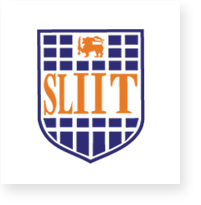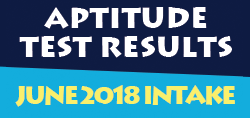The Ethics Review Committee Charter
- Establishment of Committee
- There shall be established a Committee called by the name of Ethics Review Committee (hereinafter sometime referred to as the Committee) in Sri Lanka Institute of Information Technology (hereinafter sometime referred to as the Institute).
- Scope of work of the Committee
- The scope of work of the Committee relates primarily to ethical considerations with regard to any proposed research involving, as participants, human beings and other living beings including animals, birds, plants, etc.
- The Committee will also look at research integrity, profile of researchers and sources of research funding.
- The scope of work includes researches to be undertaken by both staff and students of the Institute as well as by other persons engaged in Institute-led research projects.
- Any other work or subject matter incidental to or consequential upon the above.
- Objectives
- The main objectives of the Committee are to ensure that research proposals and other relevant instruments for the conduct of research are consistent with the guiding principles, values and norms of ethics relating to research proposed to be carried out on human and other living beings including animals, birds, plants, etc.
- The Committee is also required to evaluate and assess whether the said principles, values and norms have been followed in research carried out by researchers and institutions.
- Purpose
- The primary purposes of the Committee are to draft a Research Ethics Policy Framework governing the conduct of research on human and other living beings, reviewing research proposals and other relevant instruments including, but not restricted to, research protocols, measurement tools, questionnaires, structures of focus group discussions, data collection methods, selection of research population, data analysis methods, etc., and, recommending review of, amendments or suggestions to research proposals and other relevant instruments.
- The Committee shall review and refine from time to time the Research Ethics Policy Framework drafted by the Committee.
- The Committee is also expected to formulate any guidelines and/or rules towards facilitating the achievement of the objectives stated herein, including the processes to be followed in seeking the Committee’s approval.
- Guiding Principles and Ethical Values
- For the purpose of the role of the Committee, ethics means moral principles that control or influence a person’s behaviour. Ethical principles with regard to human beings are informed by recognizing the dignity, autonomy, non-coercion and non-harming of individual human beings as well as justice to them.
- It is recognized that good ethical decisions are guided by considerations and concerns of one’s actions on others in a given circumstance and how the actions will affect and impact the others, including their autonomy, integrity, privacy, dignity, respect and reputation, among others. Respect for human dignity should be an uncompromising guiding principle informing the formulation and conduct of research.
- The Committee shall ensure that any research proposal and other relevant instruments are consistent with and conformity to ethical norms and standards in that they are designed and formulated to uphold the dignity, safety and rights of research participants and that the research is to be conducted within an ethical and legal environment which is inherently capable of ensuring and respecting the dignity, privacy, confidentiality and safety of the participants.
- The Committee shall ensure that the funding for the proposed research comes from legitimate and legally acceptable sources. The Committee should not approve of any research proposal the funding for which comes from illegitimate, illegal and other suspect sources.
- The Committee shall be impartial, non-discriminatory, facilitative, supportive, progressive, and dedicated to the promotion of ethical standards in research.
- The Committee shall ensure that research proposals and other instruments are scientifically sound in their formulation and are capable of being administered without compromising on their scientific quest for truth.
- The Committee shall ensure that research work envisaged is within the purview of researcher’s expertise and not unduly infringing on non-related specialization without appropriate cooperation.
- The Committee shall operate procedures no less rigorous than those suggested or required by relevant statutory or professional bodies.
- At the same time, the Committee should be conscious that it should not be blatantly judgmental on quality and conclusions as many research projects are undertaken within a learning environment.
- It will be desirable and prudent for the Committee to seek specialist advice on matters which may expose researchers to potential claims for damages or legal action for infringements of rights.
- The Committee shall ensure that researchers do recognize that research involving human participants and/or their personal data may run ethical risks and they should be sensitive and be ever ready to neutralize or minimize such risks.
- The Committee shall make researchers know that participants in research have the right to withdraw from research at any tie without adverse consequences to them.
- Composition
- There shall be seven members in the Committee, representing different major disciplines nominated by the Senate. Of the seven members, two shall be from outside the Institute.
- The members shall be appointed to the Committee by the Vice-Chancellor for a period of two years. The Vice-Chancellor shall nominate one of them to be the Chairperson of the Committee.
- Members may vacate their position in the Committee by resignation addressed to the Dean or by removal by the Vice-Chancellor for cause shown. Members, other than who were removed from membership, will be eligible for reappointment.
- Any member who has a conflict of interests in the proceedings of a matter referred to the Committee shall withdraw himself/herself from the proceedings relating to that matter.
- The Committee may obtain services from any expert or specialist on a subject area where it feels that such course of action is desirable and prudent.
- Functions, Powers and Responsibilities
- The Committee shall –
- reflect on the ethical aspects and implications of research proposals and other instruments to conduct research involving human beings and other living beings as participants;
- ensure that the proposed research instruments and tools, including research methods, population, etc., are suitable for the planned research and are capable of eliciting scientifically acceptable and usable data;
- observe that the research instruments and tools are formulated keeping in mind the pluralistic character of the society, including gender, ethnic and religious sensitivities;
- verify that the proposed researchers are suitably qualified in planning, conducting and reporting research and if students and/or junior staff take part they are appropriately trained and supervised to conduct research;
- ensure that all those who carry out research and data collection are made to provide, before they commence undertaking the research, a signed Declaration to the effect that the researchers will maintain the confidentiality of the identity of participants, of data collected and that the data and findings will not be used for any other purpose other than for the research itself;
- verify that there are sufficient mechanisms for having oversight and supervision over the data collectors who are enlisted in the project;
- recommend measures and impose conditions so as to ensure that the proposals and tools meet acceptable ethical standards and principles;
- hold all its deliberations and discussion as well as all information provided in research proposals and other instruments confidential and ensure that they do not fall within the public domain;
- approve, subject to such terms and conditions which may include modifications, amendments and recommendations, research proposals and/or other instruments, or decline to grant its approval for the research proposals and/or other instruments and give its reasons for not granting the approval;
- consult, where the Committee seems it necessary, other bodies operating in cognate areas and also any other ethical review group for projects that are beyond the expertise of the Committee;
- formulate broad guidelines on the research proposals and projects which shall obtain research ethics clearance before commencing the research;
- do any other acts that uphold and promote the Guiding Principles and Ethical Considerations herein stated as well as the objectives of the Committee.
- The Committee shall –
- Operating Procedure
- The Committee shall, subject to the provisions of this section, regulate the procedure in regard to the meetings of the Committee and the transaction of business at such meetings.
- The Committee shall meet as often as necessary, and in any case, at least once in three months.
- The Chairperson, if present, shall preside at all the meetings of the Committee. In the absence of the Chairperson from a meeting, the members present shall elect one from among them to preside at such meeting.
- The quorum for a meeting of the Committee shall be three members.
- There shall be an Administrative Secretary to the Committee who shall be appointed by the Vice-Chancellor.
- The Administrative Secretary shall provide secretarial and administrative assistance to the Committee and function under the guidance of the Chairperson.
- The Administrative Secretary shall be responsible for keeping record of minutes of the meetings and for maintaining, either in electronic form and/or hard copy form, all the documents and correspondences of the Committee.
- The Committee shall prescribe the procedure and specimen application form to be used by prospective researchers seeking approval of ethical clearance for research proposals and other relevant instruments.
- The Committee shall provide, in writing, reasons for its decision when it declines to give approval of ethical clearance to any research proposal and other relevant instruments.
- A person who is aggrieved by a decision of the Committee may request, giving reasons for it, the Committee to review its decision.
- In the exercise of its review role, the Committee will strive, as far as possible, to facilitate, assist or recommend towards refining any such research proposal to make it ethics-compliant so that the proposed research could be undertaken.
- The decision of the Committee on review shall bind the parties and it will be final.
- Faculty Ethics Review Sub-Committees
- The Committee may establish, where it seems appropriate, Faculty Ethics Review Sub-Committee for each of the Faculties.
- A Faculty Ethics Review Sub-Committee (herein after sometime referred to as the ‘Sub-Committee’) shall consist of that member appointed to the Institute’s Ethics Review Committee from the Faculty and one of the external members of the Institute’s Ethics Review Committee and one other senior academic nominated by the Dean of the Faculty.
- The Institute’s Ethics Review Committee may refer to the relevant Faculty Ethics Review Sub-Committee the applications submitted for ethics clearance received from members of the Faculty.
- The decision of the Faculty Ethics Review Sub-Committee on applications referred to it by the Institute’s Ethics Review Committee will be final unless there is an appeal to the Institute’s Ethics Review Committee by any aggrieved applicant. A three member sub-committee of the council comprised of members external to the Institute shall constitute the body to handle the appeals as relevant.
- The decision of the Institute’s Ethics Review Committee on such appeal shall be binding on the applicant and final.
- Miscellaneous
- A report of the activities of the Committee for each quarter shall be submitted to the Senate for information.
- The Committee shall receive quarterly reports from each Faculty Ethics Review Committee, where they are established, and forward them to the Senate for information.
- The Committee may conduct training workshops and seminars on research ethics policy framework to the staff.








 Inquire Now
Inquire Now
